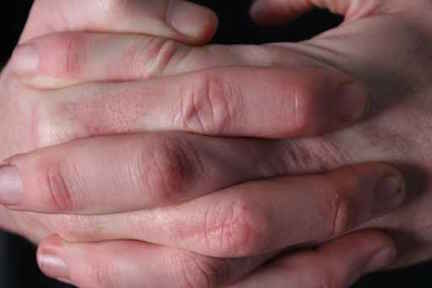I was honored to be able to present some of the research on how marriage is changing that Susan Pease Gadoua and I unearthed while writing The New I Do: Reshaping Marriage for Skeptics, Realists and Rebels before a group of therapists recently. As has been true in the many years I have been a journalist, the most illuminating moments in mot situations come when you least expect them. And, they often offer more insight into human behavior than expected. 
After the presentation, which was really well received, Susan and I made ourselves available for any extra questions (and, OK, to help spur potential book sales), and so a therapist and I started talking about consensual non-monogamous marriages.
She had a number of clients who were considering entering polyamorous arrangements and they wanted guidance. And she was a bit at a loss how to help them, not only because she had no experience with that but also because she freely admitted she had a bias.
She just wasn’t sure how comfortable she felt about polyamorous arrangements. And it was reminder of my on experiences with therapy, marital and solo (when I realized marital therapy wasn’t quite getting us where we needed — or at least wanted — to be).
I am not against therapy per se, yet I am aware that therapists are people with their own problems, experiences and beliefs. That impacts how they guide their clients, as Barbara Gerson notes in her book The Therapist as a Person: Life Crises, Life Choices, Life Experiences, and Their Effects on Treatment. Homophobic attitudes may impact a therapist’s ability to help individuals and couples, there may be a gender bias among marital therapists not only when it comes to anger but in general, they may not be able help couples navigate the complicated realities of infidelity nowadays and a lot of other marital issues that are confusing couples, and a therapist’s experience with divorce may flavor his or her advice; as Susan knows all too well, too many therapists believe it’s their job to keep unhappy couples together. Plus, as many frustrated wives will tell you, men typically don’t want to see a therapist. Which begs the question, does marital therapy even work? Well ….
Forget whatever resistance some of us may have; if the therapists we go to for help can’t help us because of their own biases or lack of training, what are we supposed to do?
I don’t have the answer for that.
Still, marital therapy can be incredibly helpful, especially when couples are willing to explore their own stuff. But you don’t always need that; when I delved into my family of origin issues in the weeklong intensive that the Hoffman Process offered (which luminaries such as Bonnie Raitt, Kenny Loggins, Roseanne Cash and others have felt helpful), I was able to focus on the broader issues that were keeping me from having the relationship I wanted. It felt healthier to explore that on my own.
But there are good therapists and bad ones, and therapists who can get past their biases and others who can’t. So it was eye-opening for me to hear a therapist admit that she had a lot to learn when it came to alt relationships. That’s what The New I Do is all about, and while the book is useful for those considering tying the knot, it also is a guide for couples that would like to transform their marriage. Thankfully, the book and the myriad questions it walks people through may be all a couple needs to do that on their own.
Still, those who counsel people on marriage nowadays must be aware of the changing marital landscape if they want to help their clients in creative ways, not the tired “work harder” but “try something different.” If you see a therapist, you might want to give him or her a copy of our book.
Interested in learning about ways to re-create your marriage? Read The New I Do: Reshaping Marriage for Skeptics, Realists and Rebels (Seal Press). Order the book on Amazon, follow us on Twitter and like us on Facebook.
(polls)
















